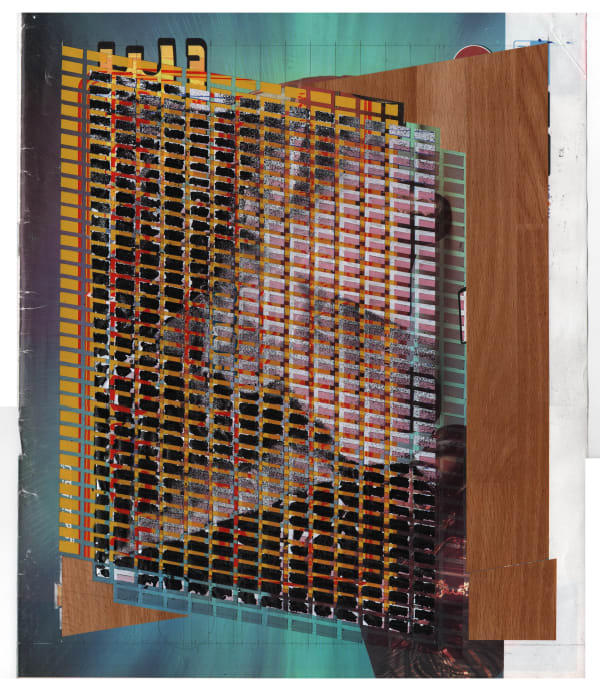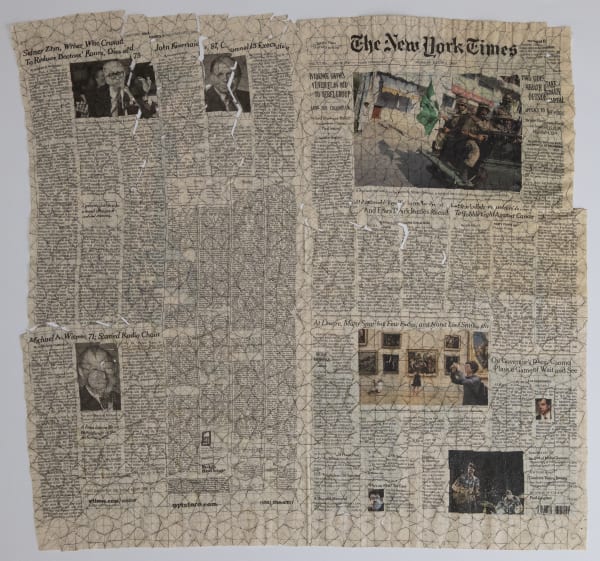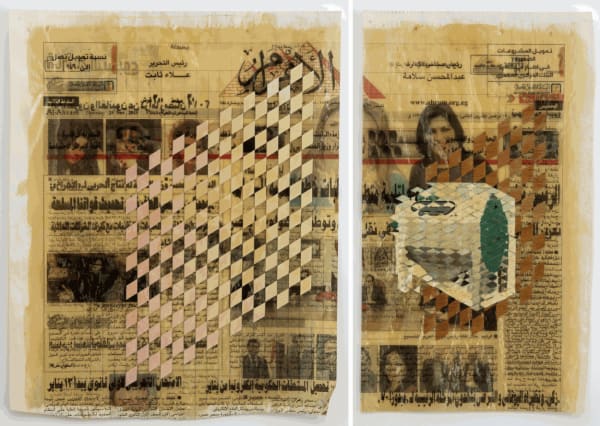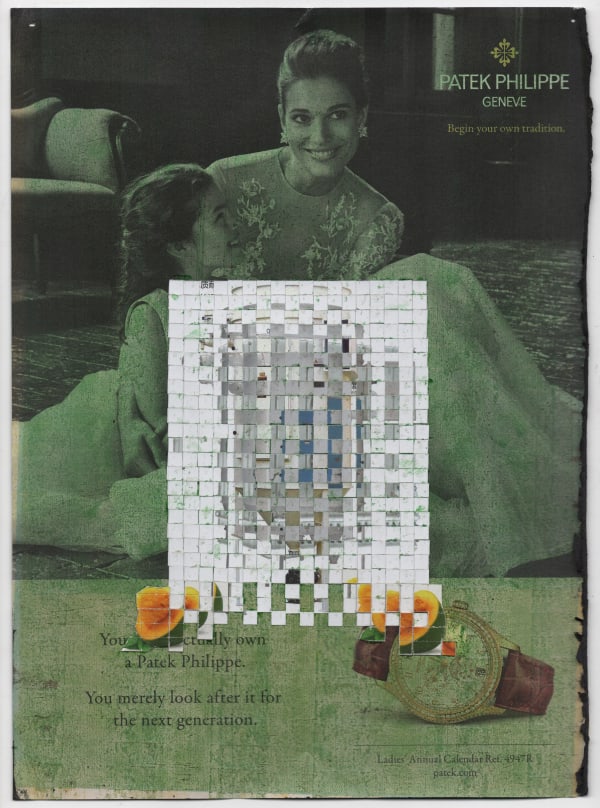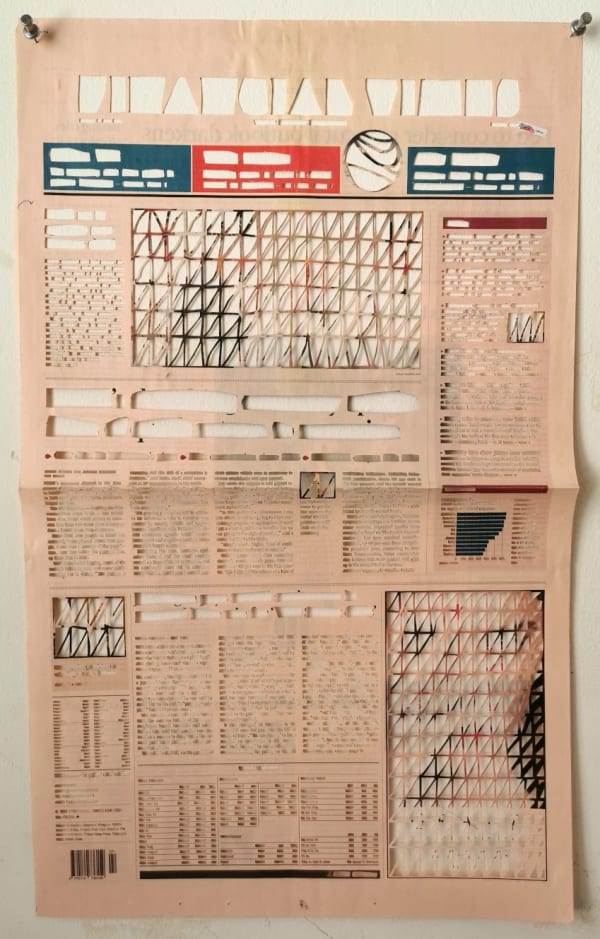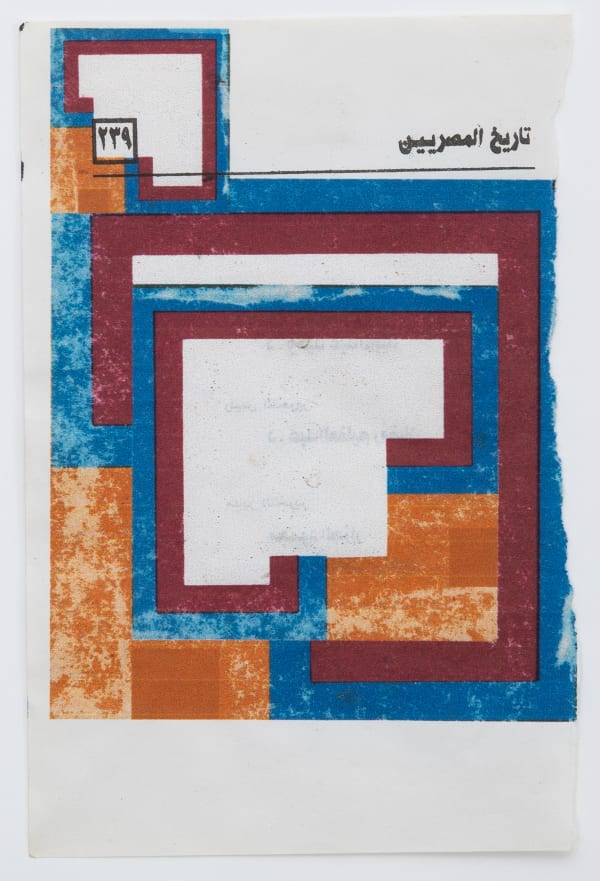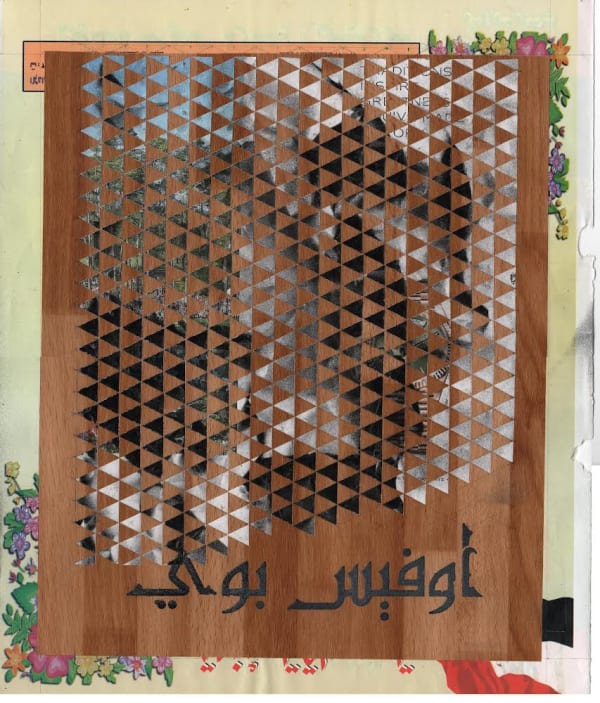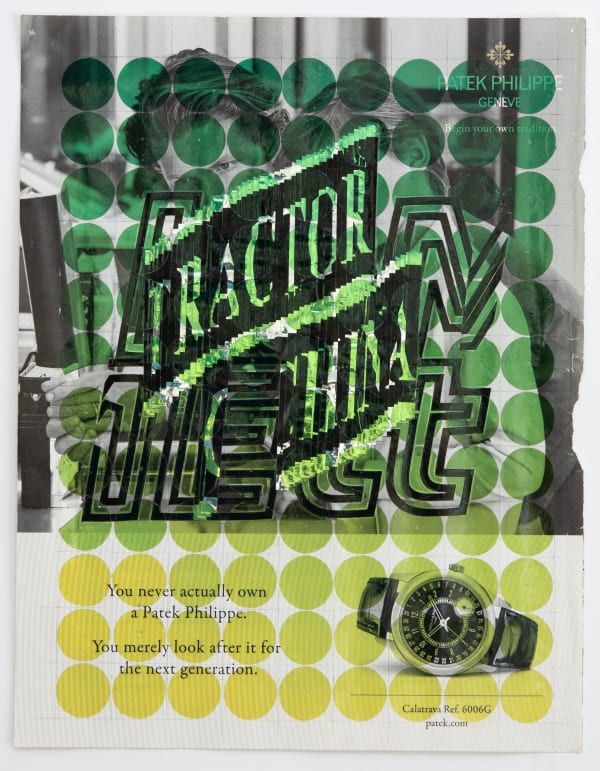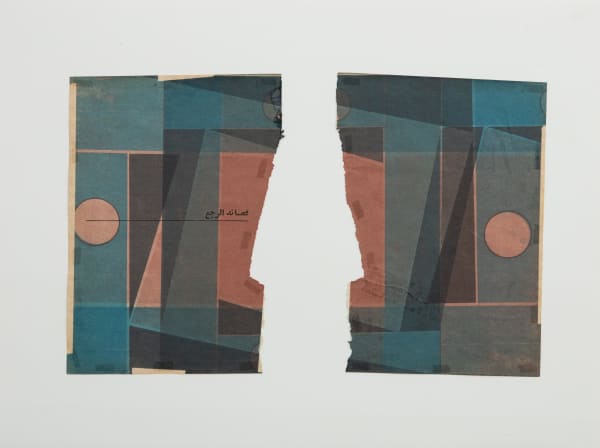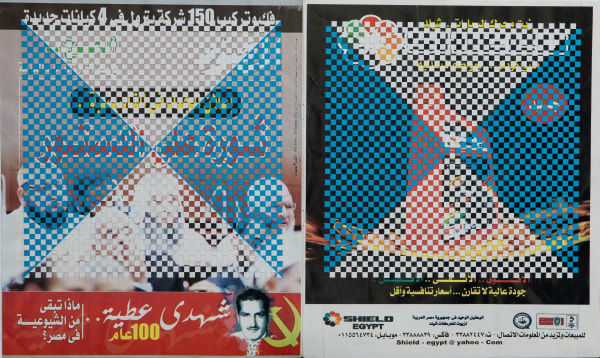Gypsum is pleased to announce Taha Belal’s second solo show at the gallery, “Dust Collectors”. The exhibition presents two bodies of work to give a sense of the artist’s trajectory over the past decade. The first, from 2014–15, focuses on formal experimentation. A second larger body of work maintains that interest while bringing in a new range of references, most notably to the environment of work.
Belal predominantly uses found printed materials. The earlier works, which function as studies, are manually manipulated renditions of old book covers. Interested in the austere aesthetics of modernism, he played with these objects’ geometries and their primary palettes. They were inquisitively taken apart, flipped, processed through photocopiers, folded by hand and processed all over again. Seductive titles, once apparently lucid representations of ideology, became distorted echoes of semantics and design.
The newer works mine the artist’s state of confinement within the setting of an import company. His current approach is influenced by that of the experimental literary field of autofiction, tending to be experiential rather than prescriptive. Newspapers, luxury ads, tissue boxes and industrial posters are utilized in a process of reconstructing language and images encountered during this daily office life. These artworks are the intricate products of meditation, compulsion and even resistance, and as such they create a trail of commentary on time, linearity and labor. The process of their making functioned as a mechanism to escape through dissociative immersion. An obsession takes the form of neurotic repetition. The compression and decompression of machinery is echoed as an image builds up in the limbo of a digitally constructed landscape. Originally advertised as ferociously speeding up agricultural production, here these machines are dragged out in slowness, becoming mere disruptions in time.
In thinking through the process of packing, pacing and presenting language, the artist repurposes newspapers as canvases for miniature constellations. An edition of the Financial Times undergoes minute slicing and a relentless redaction of rational information. Images of tractors are glued on top of advertisements for watches, signifiers of lavish time. Belal acts as a detached observer as he arranges and rearranges different configurations of contradictory values. Thus he continues his elaborate, mildly nihilistic exercises in deconstructing the tangible elements that act as mediators for the systems that contain us.

